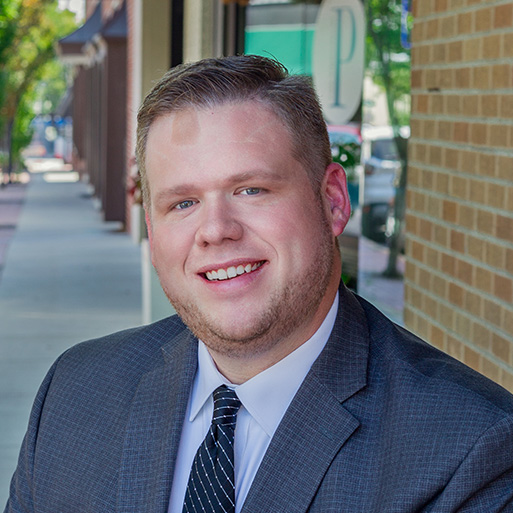Different Trusts for Different Estate Planning Purposes
Benjamin E. Long, Founding Attorney - Estate Planning and Probate Law
As the founding attorney at Schlagel Long, LLC, in Olathe, Kansas, Benjamin E. Long specializes in crafting tailored estate planning solutions, emphasizing a variety of trusts to meet diverse client needs. His expertise is demonstrated through his insightful blog, notably in his recent piece, "Different Trusts for Different Estate Planning Purposes," which underscores his deep understanding of trust law.
Education
Benjamin’s professional journey began at Kansas State University, where he earned a B.S. in Biology. He then pursued his J.D. at Washburn University School of Law, excelling in advocacy to the extent of being inducted into the Order of Barristers. His academic background contributes to his analytical and comprehensive approach to estate planning.
Experience
At Schlagel Long, Benjamin's practice encompasses the creation and management of various trusts, including Revocable Living Trusts, Medicaid Asset Protection Trusts (MAPT), and Special Needs Trusts (SNT). He skillfully navigates the intricacies of each type, ensuring they align with his clients’ unique circumstances and goals. His work with Inheritance Trusts and Irrevocable Life Insurance Trusts (ILIT) showcases his ability to address complex estate tax issues and asset protection.
Expertise
Benjamin's proficiency extends beyond traditional estate planning. He is adept in handling pet trusts, testamentary trusts, and issues related to beneficiaries, special needs, and trusts. His ability to explain these concepts in clear, accessible language is evident in his blog posts, making complex legal topics understandable for a broad audience.
Recognition
Recognized for his excellence, Benjamin has been named a Super Lawyer Rising Star and has received the Martindale-Hubbell Client Distinction Award. These accolades reflect his commitment to providing high-quality legal services and maintaining strong client relationships.
Beyond his legal practice, Benjamin dedicates time to teaching at Washburn Law School and coaching the Kansas State University Mock Trial Team. These roles further establish his expertise and leadership in the legal community.
Benjamin’s approach is not just about legal proficiency; it’s about understanding and valuing the stories and legacies of the families he serves. He believes in a personal approach, taking time to understand his clients' values and needs, ensuring their estate plans reflect their life’s work and aspirations.
Bar Admissions: Kansas
Professional Associations: American Bar Association, Kansas Bar Association, Johnson County Bar Association, U.S. District Court District of Kansas (since 2011)
Education: B.S. in Biology, Kansas State University; J.D., Washburn University School of Law

Not all trusts are alike
“Trusts are legal entities that own assets, and all trusts are not alike. They are created by a written trust document with certain provisions that can vary from trust to trust.”
There are a few things all trusts have in common, explains the article “All trusts are not alike,” from the Times Herald-Record. They all have a “grantor,” the person who creates the trust, a “trustee,” the person who is in charge of the trust, and “beneficiaries,” the people who receive trust income or assets. After that, they are all different. Here’s an overview of the different types of trusts and how they are used in estate planning.
Revocable Living Trust
Medicaid Asset Protection Trust
Special Needs Trust
Inheritance Trust
Irrevocable Life Insurance Trust
Pet Trust
Testamentary Trust
A “Testamentary Trust” is created by a will, and assets held in a Testamentary Trust do not avoid probate and do not help to minimize estate taxes.
An estate planning attorney in your area will know which of these trusts will best benefit your situation.
Reference: Times Herald-Record (August 1,2020) “All trusts are not alike”
Related Posts
